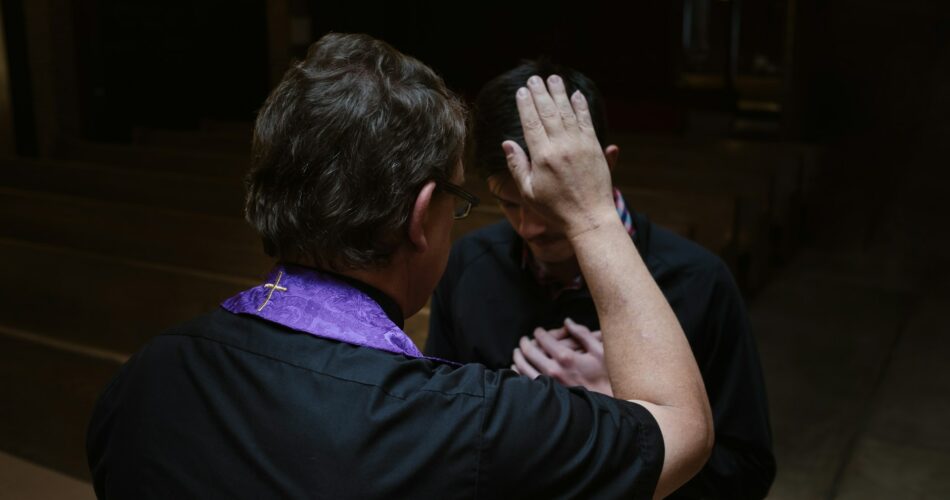He had to issue an apology.
The Rev. Joseph Williams, pastor of St. Vincent de Paul Catholic Church in Chicago, Illinois, recently issued an apology following the use of terminology and actions during a blessing ceremony for a same-sex couple that stirred controversy. In a statement released last week, Williams acknowledged the unintended repercussions of his words and gestures captured in a video that circulated widely online.
The video, initially shared on Instagram by Kelli Knight, a self-described queer Methodist pastor, depicted Williams administering a blessing to Knight and her partner, Myah, referring to them as “holy spouses” and highlighting the exchanged rings as symbols of fidelity and commitment. Williams expressed remorse for the manner in which the blessing was conducted, emphasizing his initial intention to provide a meaningful moment of grace for the couple.
Upon reviewing the video, Williams recognized the inadequacy of his chosen language and visuals, expressing deep regret for any confusion or offense caused, particularly among the congregation. He acknowledged his responsibility as a spiritual leader to adhere to the norms approved by the Church, admitting that his actions deviated from these standards.
Williams’ affiliation with the Vincentians of the Congregation of the Mission’s Western Province underscores his commitment to serving the community through various charitable initiatives and pastoral duties. The Congregation of the Mission endorsed Williams’ apology, clarifying the context surrounding the blessing ceremony and reaffirming the Church’s stance on the sanctity of marriage.
The controversy surrounding the event coincided with the Vatican’s issuance of a declaration titled “Fiducia Supplicans,” which delineates guidelines for offering blessings to same-sex couples while upholding traditional Church doctrine. Despite the Vatican’s clarification that such blessings do not equate to marriage ceremonies, the incident sparked debate over the Church’s stance on LGBTQ+ rights and inclusion.
In light of the backlash, Williams’ apology serves as a reminder of the complexities inherent in navigating contemporary social issues within the framework of religious doctrine. While striving to uphold the principles of faith and compassion, Williams’ misstep underscores the ongoing dialogue within religious communities regarding LGBTQ+ acceptance and the interpretation of traditional teachings.
